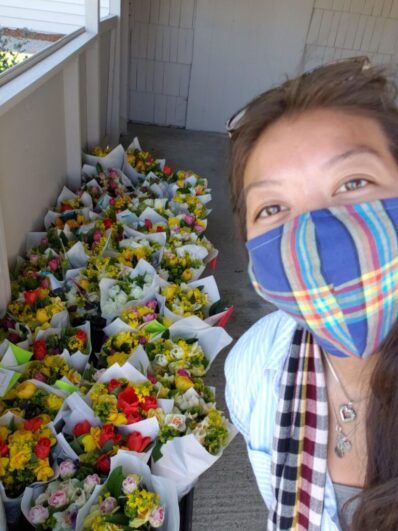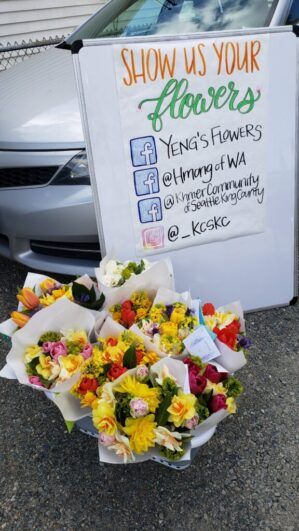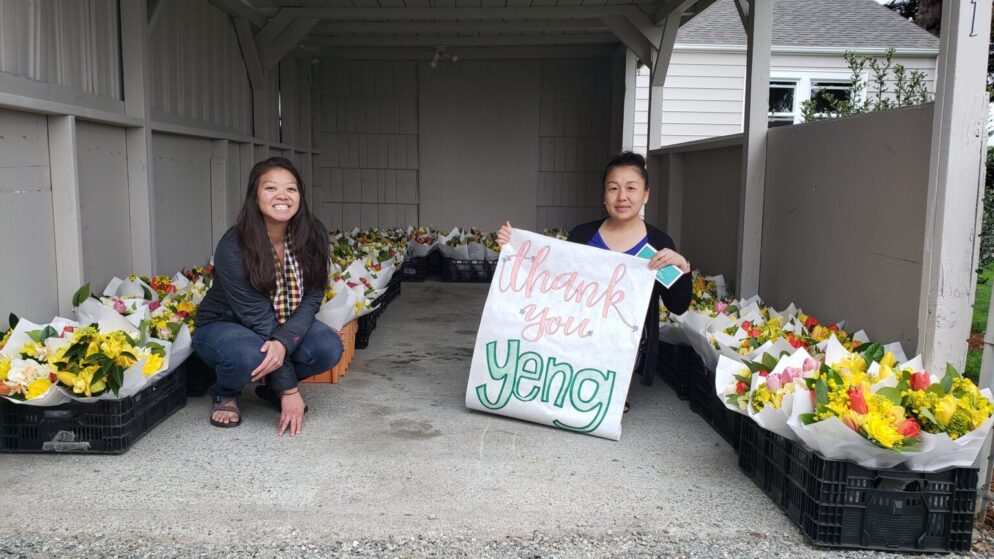When COVID-19 shut down businesses and prompted stay-at-home orders, the state of Washington’s Hmong and Mien flower farmers, like many small business owners across the country, were hit hard. With Pike Place Market closed, farmers could no longer sell their flowers, forcing them to confront the reality of throwing away their investment.
After speaking with the Hmong Association of Washington, Stephanie Ung, a program manager for a college access program at the University of Washington, had a thought. What if she and her colleagues at the Khmer Community of Seattle King County raised money to buy flowers and then sell them to people in their own networks?

Stephanie shared her idea with the Hmong Association of Washington, which connected her to a flower farmer. Interested buyers would submit orders via a Google form, and payments would be done electronically. At first, Stephanie placed an order for 50 bouquets.
“Orders flooded in,” Stephanie recalled, adding that the process was a way to engage with youth to get involved in the local community. For example, one person organized the spreadsheet of orders, while another person created labels, and someone else printed the labels. Youth ambassadors also volunteered to deliver flowers to buyers who could not travel to the pickup site.

In the end, Stephanie and her group sold 200 bouquets in April. “The people who came and picked up their bouquets were really respectful of physical distancing, wearing gloves and masks,” she said. The next month, Stephanie sold 820 flowers across nine pick-up sites.
Ultimately, the experience of coming together as a community, with younger generations helping elders, has filled Stephanie with hope.
“I really believe in the strength and capacity of young people to make change,” Stephanie said. “I felt the power of learning about my identity and my culture later in my adulthood. And I just want that for our young people, especially our Khmer people because so much of the residual trauma from the Khmer Rouge has been disconnect and connect between youth and elders. And I feel like community work that tries to bridge those is really what could be the most healing.”




